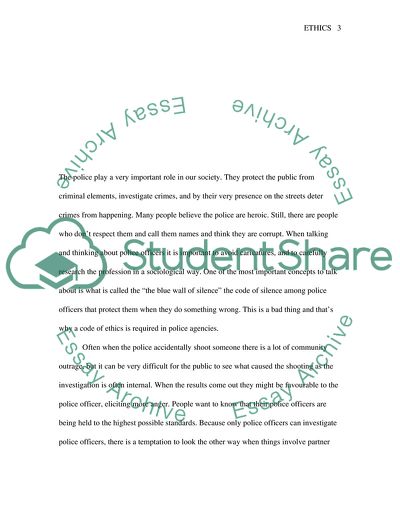Why a Code of Ethics is Needed Within Police Agencies Research Paper. https://studentshare.org/human-resources/1728942-why-a-code-of-ethics-is-needed-within-police-agencies
Why a Code of Ethics Is Needed Within Police Agencies Research Paper. https://studentshare.org/human-resources/1728942-why-a-code-of-ethics-is-needed-within-police-agencies.


